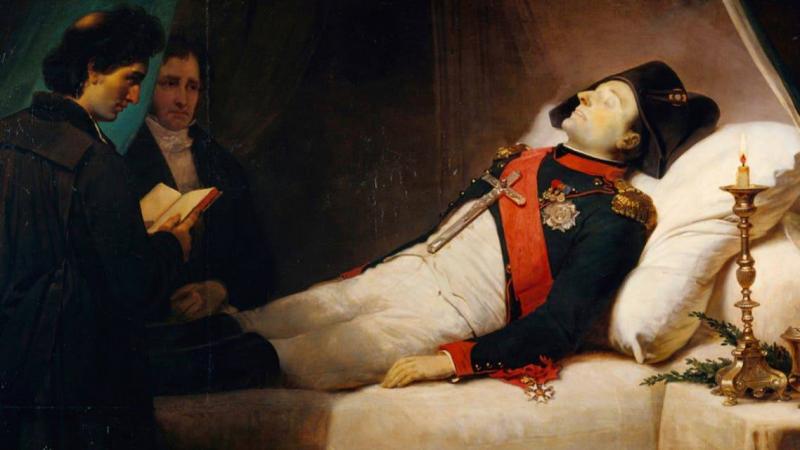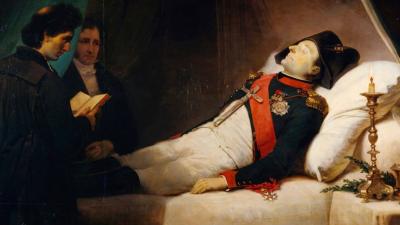Under the title "Due to This Illness... Napoleon Bonaparte Died," the Arabic site reported on the disease that led to the death of Napoleon Bonaparte. The site noted that France is preparing to celebrate the 200th anniversary of Napoleon Bonaparte's death on Saint Helena Island amid intense debate about the emperor's character. While some consider him a bloody and racist figure who reinstated slavery in France and undermined the role of women in French society, others call for respect for his legacy and history, classifying him as a national hero who brought France back to the global forefront following the French Revolution.
After losing the Battle of Waterloo on June 18, 1815, French Emperor Napoleon Bonaparte was forced to abdicate the throne for a second time, marking the end of the Hundred Days that followed his escape from his first exile on Elba Island. Following this defeat, Napoleon was exiled to Saint Helena Island in the Atlantic Ocean, where he was placed under heavy guard. He spent his final days on this island, passing away on May 5, 1821, under difficult circumstances.
#### Severe Pain and Last Words
According to sources from that period, Napoleon suffered from severe abdominal pain during the last months of his life. On March 17, 1821, the former French emperor became bedridden. In addition to being unable to move, Bonaparte gradually refused the food offered to him and experienced daily vomiting alongside a decline in weight. In early May, he attempted to rise from his bed but quickly collapsed and returned to his place with the help of those present at his exile.
During this time, a bust of his son, Napoleon II, from his marriage to Austrian Princess Marie Louise, who he had been deprived of seeing since 1814, was placed in front of Bonaparte's bed. The former emperor contemplated this bust throughout the last days of his life.
On May 4, English doctor Archibald Arnott administered a dose of bichloride of mercury, against the advice of French doctor François Antommarchi, in hopes of alleviating Bonaparte's pain. Initially, everyone noticed some signs of improvement in the former emperor, but he later complained of more severe pains than before.
During the night between May 4 and 5, 1821, Napoleon was nearly unconscious. At one moment when he regained his senses, he uttered his last words: "Head... army." Around 5:49 PM on May 5, 1821, Napoleon Bonaparte died at the age of 51 years, 8 months, and 20 days, marking the end of a French figure who had terrorized Europe over the past years and contributed to shaping the modern world.
#### Stomach Cancer
According to his will, Napoleon agreed to have his body examined to determine the cause of his death. French doctor François Antommarchi, assisted by seven British doctors, conducted the autopsy to understand the nature of the illness that afflicted the former French emperor in his final days. Following his death, Antommarchi published various reports on the causes of his death, indicating that the former emperor suffered from severe gastric ulcers.
In 1823, doctor Walter Henry released another report confirming the presence of a stomach ulcer and evidence of cancer in Napoleon. According to the official account provided by the governor of Saint Helena Island, General Hudson Lowe, Napoleon Bonaparte died on May 5, 1821, due to stomach cancer, the same illness that killed Charles Bonaparte, Napoleon's father, about 36 years earlier. In the years that followed, many other narratives emerged, supporting the conspiracy theory that the British intentionally killed the former emperor by poisoning him with arsenic.
In his will, Bonaparte requested to be buried in France. However, this wish was not executed initially, and he was buried on Saint Helena Island. About 19 years later, Bonaparte's last wish was fulfilled when his body was transferred to France and buried in Les Invalides.




